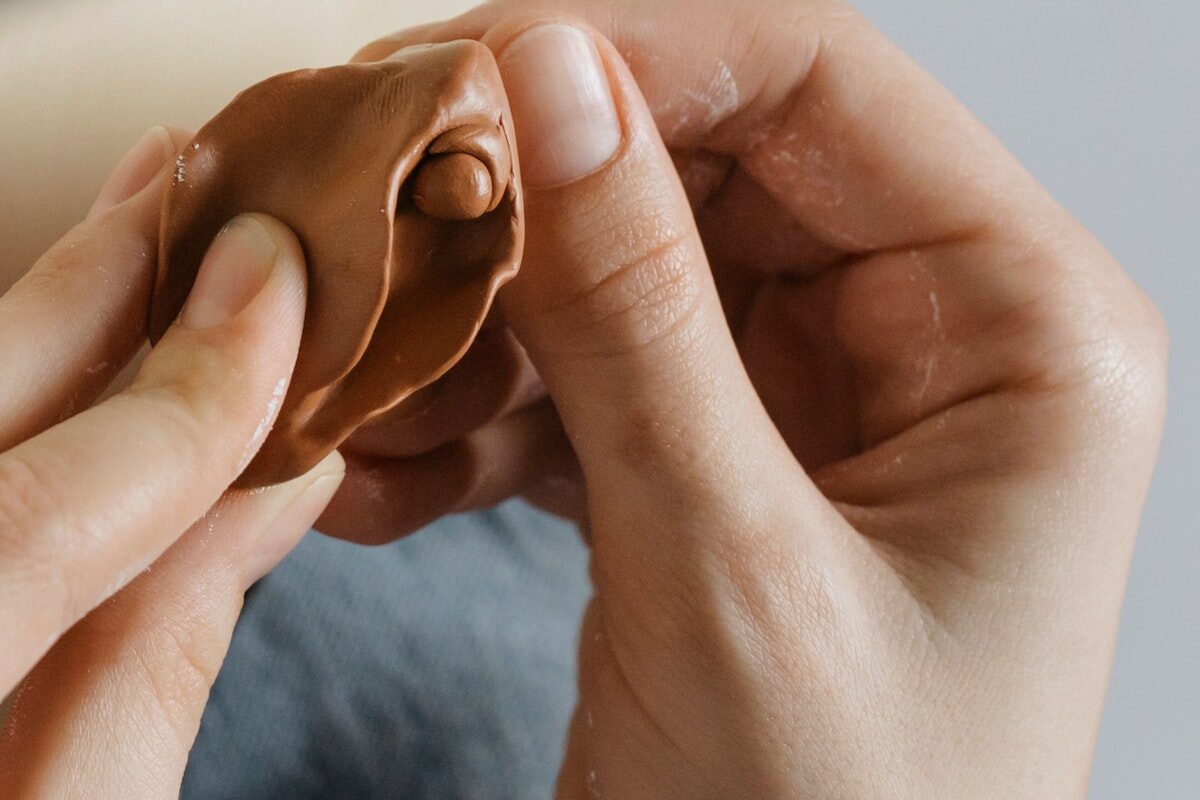Women are often alarmed to see brown discharge in their underwear, especially if it occurs before or during menstruation. However, brown vaginal discharge is usually a normal part of the menstrual cycle and not a cause for concern.
Sometimes a woman may experience spotting during ovulation or while taking birth control pills due to a drop in estrogen. But, if the spotting is brown with an unpleasant odor, it could be a symptom of a sexually transmitted disease.
Causes
Some women have naturally darker skin around the labia and inner vulva. This is mainly due to genetics, but can also be caused by certain lifestyle habits and health conditions. For instance, poor diet and smoking can cause the area to become more dark. In addition, hair removal creams and tight underwear can irritate the delicate skin. This causes it to appear red or brown.
Some medical conditions that can lead to a brown vaginal discharge include bacterial vaginosis (BV) and pregnancy. BV is an infection that results from the overgrowth of bacteria in the vagina and disturbs its natural pH balance. This causes symptoms such as burning during urination, itching and brown discharge with an unpleasant odor. A supplement like Boric Acid Suppositories from Intimate Rose can help soothe irritation and restore the normal vaginal pH balance.
In addition, a woman may experience light bleeding or brown discharge during ovulation and the first trimester of pregnancy. This is normal and should not be a cause for concern. However, if this occurs during menopause or is accompanied by severe additional symptoms, it is best to speak with a doctor immediately.
In rare cases, a brown discharge can also be a sign of endometriosis, an ectopic or miscarriage, polycystic ovarian syndrome or cancer. Each of these conditions will present with more severe symptoms and should be viewed by a doctor immediately.
Treatment
Some women may be alarmed to see a change in the color of their vulva, especially when it is associated with a brown discharge. But it is important to remember that changes in the shape and texture of the vulva are normal with age, and dark spots and patches are common.
Brown vaginal discharge is often a sign of an infection, such as bacterial vaginosis (BV) which is an overgrowth of bacteria in the vagina. This can cause irritation and upset the natural pH balance, which can then lead to vulvar pigmentation. It is also more likely to occur if you have unprotected sex or use tight, ill-fitting underwear.
In some cases, it can be a sign of pregnancy. However, if the brown discharge is accompanied by heavy bleeding or other severe symptoms, you should seek medical attention immediately. It could be a symptom of an ectopic pregnancy, which is dangerous for both mother and baby, and requires immediate medical care.
You can treat some cases of vaginal spotting and darkening by using natural methods, such as massaging the area with yogurt for about 10 minutes each day. This will help to exfoliate and brighten the skin, and it is also effective in reducing itching. You can also make a paste of sandalwood, lemon juice and cucumber juice and apply it to the vulva.
Prevention
Some women find brown discharge alarming, even though it’s a natural part of the menstrual cycle. However, if it’s bloody or accompanied by other symptoms, such as pain, itching, vaginal odor or changes to your menstrual cycle, you should definitely seek medical attention as it could be a sign of a serious health problem.
In most cases, brown discharge is simply old blood mixed with normal mucosal secretions, according to the U.S. National Library of Medicine. Fresh blood is bright red, but as it oxidizes it turns light to dark brown giving your discharge its color. The oxidation process happens more quickly near the beginning and end of your period, which is why brown discharge occurs at those times.
A few drops of blood in your vagina may be due to implantation bleeding, which can occur when a fertilized egg attaches to the uterine lining and creates a small amount of bleeding. This type of bleeding usually happens around the time you expect your period and may be accompanied by cramps, so it’s worth taking a pregnancy test.
Brown discharge can also be a sign of uterine fibroids, which are noncancerous but may lead to infertility. You should have regular pap smears starting in your early twenties to help lower the risk of cervical cancer. Some STIs, such as chlamydia and gonorrhea, can also cause brown discharge.
Diagnosis
Many women’s private areas darken with age, which is totally normal and nothing to worry about. This is because the body’s natural oils break down over time, causing the skin to become darker in colour. It usually affects the labia, vulva and anus but can also occur on the arms, chest and underarm area. This is known as hyperpigmentation.
Occasionally, brown discharge can occur during menstruation or following unprotected sex. This is because the blood takes a little longer to exit the uterus, which causes it to oxidize and turn brown. It can also happen at the start or end of your pregnancy when a fertilized egg attaches to the lining of the uterus and causes light bleeding.
If the brown discharge is accompanied by severe additional symptoms, you should seek medical attention right away. It could indicate a bacterial infection like BV, or it could be a sign of serious conditions like ovarian cysts, endometriosis or cancer.
If you have a mild or moderate case of BV, treatment options include antibiotics and supplements to improve the health of your vulva microflora. These supplements can help treat the bacteria that cause BV, as well as reduce other symptoms like pain with urination and itching. They can be purchased online, without the need for a prescription.




Leave a Comment